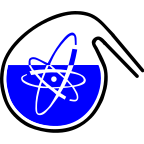Speaker
Description
Sugarcane has been a versatile crop in Brazil and an integral part of its economy by providing key components such as sugar, ethanol and energy. It is the number one source of renewable energy, accounting for 17% of total energy consumption. Sugar is the country´s fourth largest export commodity. Brazil is the world’s largest sugar producer with 34.65 million tons in 2021, maintaining its worldwide share of 20% in production and 40% in exports. Brazilian sugarcane has a leading role in the global sugar market and in the biofuel energy market. The country has stood out in the last 50 years for having continuously implemented a biofuel program for its entire fleet of vehicles, through the use of a hybrid fuel of ethanol and gasoline. A milestone was the National Alcohol Program (Proálcool), launched in 1975 with the objective of stimulating the production of ethanol to meet the needs of the domestic market and the development of an environmentally and economically sustainable automotive fuel policy. However, a challenging aspect of ethanol and sugar production depended on the harvesting system, a previously manual process after burning the cane standing in the field, which increased the amount of mineral impurities adhering to the delivered stalks to the sugar and ethanol industry. The mechanized harvesting system with sophisticated technology was then consistently deployed to solve the problem, increasing productivity and minimizing production costs. For this study, a series of sugarcane truckloads were sampled at the entrance to the sugar mill industry, using a sampling probe at various positions of the load. Distinct textures of soil (clayey and sandy) and climatic conditions (dry and rainy seasons) were observed. Sugarcane and soil samples were processed (drying, milling and packaging) for irradiation in the nuclear research reactor of the Nuclear and Energy Research Institute (IPEN/CNEN), São Paulo, SP. The elemental profiles of the samples were obtained by neutron activation analysis allowing to estimate the amount of mineral impurities in the raw material with high precision, using the tracers Sc, Th, Fe, and Hf, found in much higher levels in soils than in sugarcane. Data processing was performed using robust multivariate data science (NPMANOVA) and artificial intelligence as supervised machine learning for classification (Neural Networks, Support Vector Machine and Deep Learning). We also applied supervised machine learning for prediction (Random Forest, Logistic Function and Robust Regression) and unsupervised machine learning (Principal Components Analysis with Biplot and Cluster Analysis), canonical functions for dimension reduction and visual analytics. The SAS language and the WEKA program were used. The adopted methodology worked efficiently to detect differences in the content of mineral impurities in different conditions of environmental humidity and type of soil where the sugarcane was grown. It was possible to demonstrate probabilistically (p-value < 0.01) and by inductive artificial intelligence the differences in field origin and quality of labor work in the sugarcane harvesting, for possible corrective actions. The discriminating functions inferred by artificial intelligence could be applied in a bot, in order to optimize the quality and productivity of the system, as this technological package allows detecting potential for improvement in the raw material that enters the industry.

